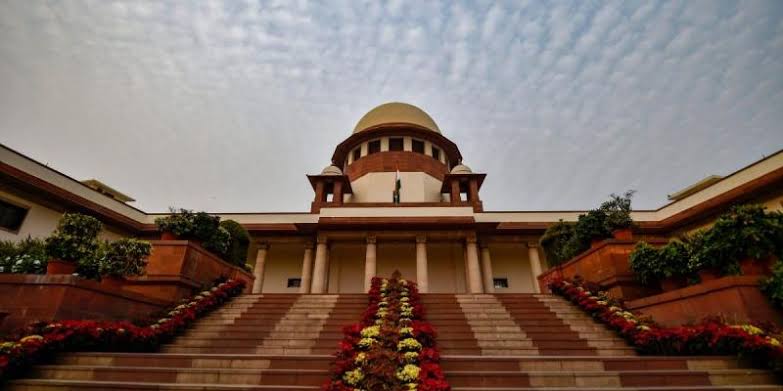The Supreme Court on Thursday refused to de-register the political parties promising freebies before elections, stating that entertaining such a request will go against the principles of democracy.
A bench comprising Chief Justice of India (CJI) N.V. Ramana and Justice Krishna Murari, while rejecting the plea, observed that it cannot enter the area of de-registering political party, as it was an undemocratic arena.
The Apex Court fixed August 17 as the next date of hearing.
The Court made the observations, while hearing a public interest litigation petition filed by BJP leader Ashwini Kumar Upadhyay, seeking directions to the Central government and the Election Commission to take steps for regulation of poll manifestos of political parties and making the parties accountable for promises made in such manifestos.
Appearing for the Centre, Solicitor General Tushar Mehta, said that freebies by political parties need to be regulated. It added that the Supreme Court can lay down some guidelines or something, until the legislature frames a law in this regard.
The SG further suggested that an expert committee, comprising Beneficiaries, Secretary Central government, Secretaries of State governments, representatives of each political party, representative of Niti Aayog, RBI, Finance Commission, National Tax Payers Association, one who supports freebies, industry and stressed sectors, would be set up soon.
Senior Counsel Kapil Sibal said that since this was case a complicated issue, it should only be dealt with, based on solid data.
The Supreme Court then pointed out that freebies can also lead to illegalities being legalised.
The CJI, giving example of his father-in-law, who is an agriculturist, said that the government has refused free power connection to agriculturists or land holders.
“My father-in-law asked me if I can file a writ, but I told him that it was a policy decision.”
The CJI further said that irregular connections of his father-in-law’s neighbours were regularised, but his was not. “The wrong doers are approved and law-abiding people are punished,” he added.
As per the CJI, the loss of money to the exchequer and the welfare of people have to be balanced.


